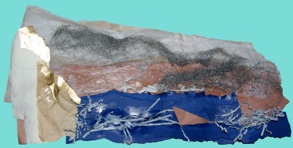Using Art in Counselling




I am an Art School Graduate and a working artist and have found myself naturally drawn to train in Using Art Therapeutically from a person-centred perspective in addition to my PCT counselling training, because I found myself spontaneously using this way of communication in my own therapeutic journey and subsequently as part of my response to my course. I now particularly enjoy accompanying people in this way and encouraging them in their discoveries.
This approach can enrich and surprise you as you explore your situation in a supportive atmosphere and may be especially helpful when words are hard to find.
Art materials are readily available if you wish to use them and experiment with this way in a caring and non-judgmental environment.
I have included some comments from Liesl Silverstone who is one of the originators of this therapy, as they give more explanation and insight into what you might experience in a session.

Images are extensions of the self-made visible in symbolic art form. To have dialogue with such an image in a person-centred way, to reflect back aspects of the image – size, colour, position of shapes, use of material, the process of image making, that which is missing – can help the client to connect, make bridges between the image and the self. Healing, growth and integration can occur at every level of development.

Images are a means of communicating for those with limited or impaired verbal skills, and for the articulate whose words can distract, defend, deceive. The spontaneous image is ‘spot on’. It can be trusted.

The person-centred approach, working at the pace of the client, respects that time of readiness or unreadiness. If the client does not see what the picture shows, at this moment, the counsellor does not push, intrude; rather, accepts, lets be, moves on or waits.
Art Therapy the Person-Centred Way – Art and the Development of the Person by Liesl Silverstone 1997
Art Therapy Exercises: Inspirational and Practical Ideas to Stimulate the Imagination by Liesl Silverstone 2009
